Trailblazing Insights for Psychedelic Therapy
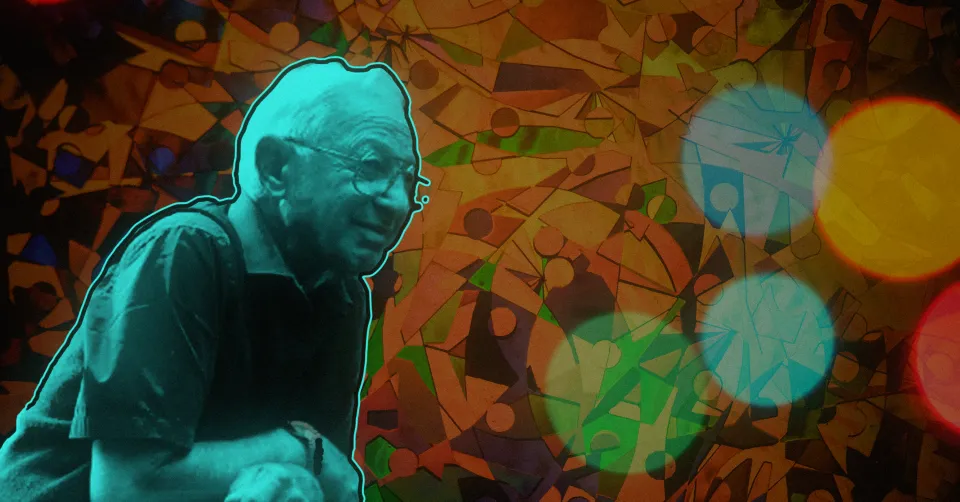
There's a growing trend of people who describe themselves as "psychedelic therapists" or "facilitators" these days.
It's chic and all the cool kids are doing it... sometimes even just months after discovering psychedelics (yikes)
In their defense, unless one was initiated by an experienced lineage of elders —there's really no right way to be a psychedelic facilitator, either.
So in a sense, it's the Wild West out there, with many winging it.
I've seen actual therapists and professionals with fancy academic degrees fail, as well as completely "unqualified" people do exceptionally well as psychedelic facilitators.
Meaning...
There's no easy heuristic or method of assessing how competent someone is as a facilitator short of actually doing a session with them.
—Dr. D
Plus, the underground nature of this important work can also introduce additional friction when finding the right person.
So, what makes a great facilitator?
A great facilitator is a (formerly) sick person who has done the work to heal themselves with the help of Entheogens and, as a result, like a spiritual mariner, has intimate experience of navigating both heaven and hell with grace — and most importantly, can help you do the same 🧭⛵️
Great facilitators are also great students who honor and study other great facilitators to understand how they approach medicine, modalities, and healing — so they could become better healers themselves.
You learn by endless studying and experimentation.
The problem is, since there ain't no schools for this kind of work, you must diligently curate your own curriculum.
A facilitator is a knowledgeable, experienced individual who generally facilitates psychedelic journeys for folks in Western cultures.
A shaman is someone who has undergone extensive training under the tutelage of an indigenous lineage and has dedicated their entire life to the job.
You CAN be a part-time facilitator, but not necessarily a part-time shaman.
In my opinion, being a shaman is a considerably more arduous job than being a facilitator, but they are both important and necessary roles.
—Dr. D
I hope today's edition of NSP will make a meaningful contribution to your psychedelic curriculum, even if you're not a facilitator or planning on becoming one.
Today's edition of NSP is dedicated to one of the most important, pioneering psychedelic therapists named Leo Zeff.
This is a belief that I have. It requires some sort of medium. The medium can be medicine, the medium can be alcohol, and the medium can be a transformation of consciousness.
It could be a deep crisis in their lives. It could be a priest or a minister or a psychotherapist as the facilitator.
It could be something that they smoked, it could be some of the thousands of things that grow that they would ingest that turn them on.
Turning on is the phrase that I use now for getting into a state where transformation occurs.
—Leo Zeff
Considering he's virtually unknown outside his immediate circle of friends & clients, I hope to bring more awareness to Leo and his contributions to a wider audience.
Leo transitioned from his physical body in the spring of 1988 at the age of 76, but his legacy and influence lives on.
I will be sharing some interesting insights on how Leo approached psychedelic-assisted therapy a bit later, but before that, let me introduce this unsung hero of psychedelic therapy.
While working as an underground facilitator, Leo didn't go by his real name, instead...
Leo Zeff went by the alias 'Jacob' and was known as 'The Secret Chief' in the underground
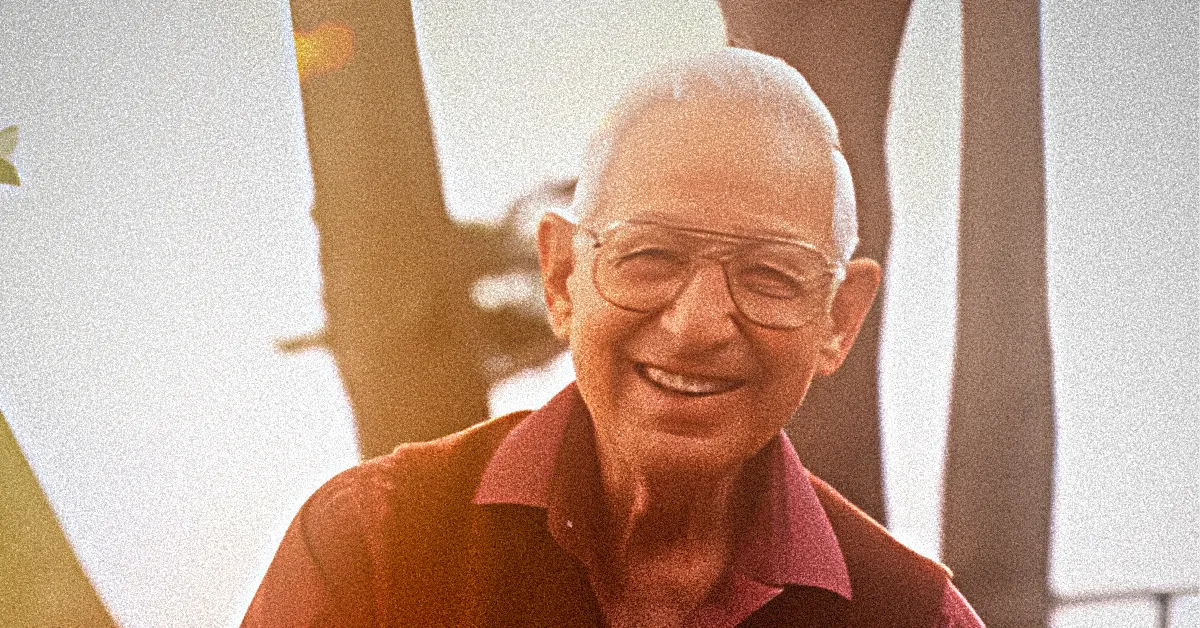
At about 5 foot 6, Leo was physically short, but was a kind-hearted giant.
Anyone lucky enough to have met him would most certainly remark how warm, excited, and engaged he was with people and life.
He was one of those wholesome dudes with a permanent smile on his face... you know... the type of guy who could befriend anyone.
Leo was proud of his Jewish heritage as well as his service in the army, where he attained the rank of Lieutenant Colonel.
He was also a Ph.D. and a licensed psychologist who had a private practice as a Jungian therapist.
But, he didn't get introduced to psychedelics until the early 1960s, until he was almost 50 years old!
Personally, I think 30 is a great age to get into psychedelics because by that time one has had sufficient life experience to be used as grist for the psychedelic mill... which typically leads to much deeper & richer levels of awareness and perspective changes than say an 18-year-old.
In addition to the brain not reaching its full development, most 18-year-olds don't have the emotional maturity or capacity to handle psychedelics, and are bound to miss the entire point of psychedelics for the simple reason of lacking a wider range of life experiences as opposed to a 30-year-old.
But, I digress.
My point is... in Leo's case, considering he was almost 50 when he first got into psychedelics, he had a TON of grist for the psychedelic mill in the form of life experience(s).
Not only that, considering his professional background as a Jungian analyst and a therapist, all that grist could be interpreted with much more depth and resolution after being processed through the psychedelic mill.
In fact, around 1961, Leo's life changed dramatically as a result of being introduced to LSD and Mescaline as his first psychedelics.
For context, LSD was still legal then.
These potent compounds ushered in such a fresh realm of self-awareness in himself that it compelled him to incorporate them into assisting his existing clients.
They proved to be immensely impactful.
Their effectiveness was so profound that he decided to abandon traditional therapy and dedicate himself to exploring and applying these substances in his work.
Around this time, due to legal and professional risks, Leo decided to adopt a new alias and went by his new name, Jacob while working as an underground therapist and facilitator.
By the time he turned 70, Leo was responsible for introducing psychedelic compounds to nearly 4,000+ individual practitioners & facilitators 😮
Not bad for a guy who didn't start until he was 50!
Not only that...
Leo was respected by all the psychedelic greats
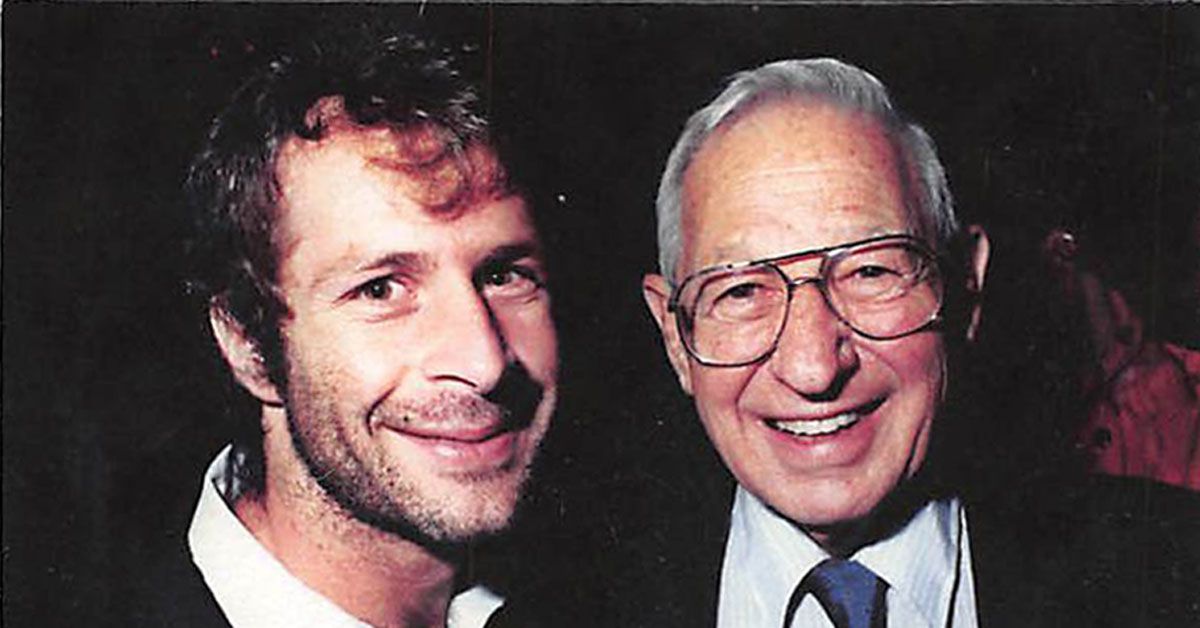
You know you're a real mensch when you have an all-star coterie of friends who hold you in high regard.
Albert Hofmann, Terence McKenna, Rick Doblin, Alexander "Sasha" Shulgin, and many influential O.G's in the psychedelic community loved and respected Leo.
Leo was also one of Rick Doblin's most important mentors and shared countless insights on MDMA-assisted psychotherapy.
Long before, Rick Doblin founded the Multidisciplinary Association for Psychedelic Studies (MAPS) to fund MDMA research, Leo was one of the guys who influenced Doblin.
Alexander Shulgin, whom I consider to be the undisputed Jesus of psychedelics, is the guy who originally introduced MDMA to Leo Zeff around 1977.
Leo's response to MDMA was so wildly enthusiastic that it compelled him to postpone his retirement to share MDMA's therapeutic benefits with the world.
Even Aldous Huxley's encouraged him.
Leo was essentially The Johnny Appleseed of MDMA.
Leo used to call MDMA "ADAM" (as in Adam & Eve) because he felt that it stripped away ego defense mechanisms and returned the user to a primordial state of innocence.
Leo also played a pivotal role in introducing MDMA to countless other facilitators back in the day.
For example, below you will find another pioneering MDMA therapist named Dr. George Greer and his wife Requa Tolbert talking about Leo's influence on their work.
🔊 The following audio recording is an abridged and enhanced clip from Episode #88 entitled "MDMA Before Ecstacy" from the excellent Psychedelic Salon podcast.

While most people who were influenced by Leo Zeff will remain anonymous, it's still cool to hear actual recordings of people providing unsolicited testimonies of his contributions.
Even Uncle Terence loved the guy despite only knowing him for the last 5 years of his life.
🔊 Here's an audio recording of Terence McKenna talking about Leo during his memorial:
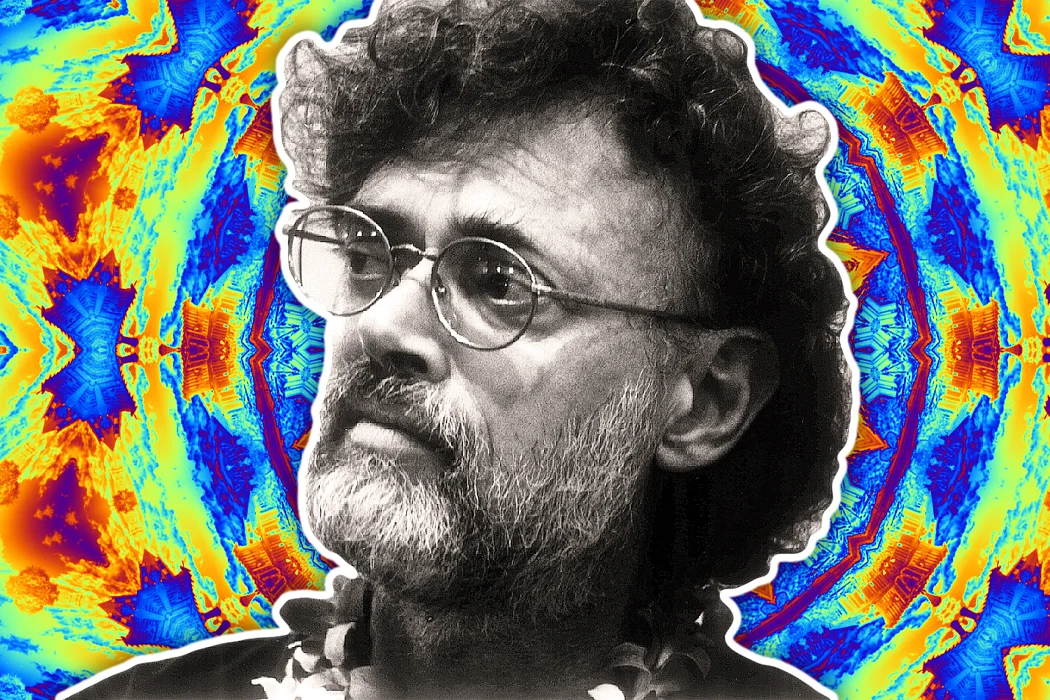
After the public meeting at which we met, I cornered him in private, and I said, 'Leo, I want to ride in your canoe.
I don't care where you're going, I just want to be in your canoe.'
And he said, 'You're always welcome in my canoe.'
I felt that his saying that to me inducted me into a group of people that I think of as Leo's tribe, Leo's people and for Leo's tribe, Leo was our chief.
He was the secret chief.
He had no fury to push, he had no axe to grind.
In his chosen field, which was psychology and the healing of the soul, he understood better than anyone I've ever met that it's a matter of letting the psyche grow and flower according to its own rules.
—Terence McKenna
Mustafa (the Mantis) has also included some great words by Albert Hofmann talking about Leo at the very bottom of this edition of NSP in the Mustafa's Meditation.
With that said, let me share two useful techniques from Leo's bag of tricks that could be very helpful when facilitating psychedelic sessions.
Remember...
—Dr. D
So, regardless of whether you're a "professional" facilitator who holds space for others or an individual psychonaut who holds space for yourself — you should still find these insights to be helpful when journeying with psychedelics.
As far as Leo...
He had a strict intake process, and all of his patients were forbidden from mentioning his name or what he did to anyone else 🤫
Being a military man, I reckon it was his personality to be ultra-discreet.
If someone made it through the intake process, their first trip would always be with LSD, preferably in their own home since they were already comfortable in that environment.
Before anyone participated in a psychedelic session with Leo, they'd have to agree to the following rules:
- You must not leave the house where we're having the trip at any time during the trip without prior clearance from me.
- You agree there will be no physical harm or violence to yourself or to me or to anything else in the house.
- Furthermore, you agree you will not reveal to anybody else where and with whom you had this trip without prior clearance from me, ever.
- There will be no sex taking place between us.
- If at any time during the trip if anything is going on, and I tell them to stop it, stop doing it, and I make clear, "This is under structure; it's not just a recommendation or suggestion," they agree that they will stop it. Or if I tell them to do something and I make clear it's under structure, they agree that they will do it. I tell them to look at this one very, very carefully because when they agree to that they are virtually putting their lives in my hands and the only thing they have to go on is whatever faith they have in me—that I would never let them do anything that would be harmful to themselves, nor would I ever require anything of them that would be harmful to them. These are bills to faith. That puts them back on their faith, see.
Once someone is ready to partake in a session with Leo, he'll bring out a couple of tried and true techniques to make sure everything goes smoothly.
Don't be fooled by the simplicity of the techniques, either, as they've been refined over countless sessions and years of study of the human mind.
The first technique is...
Technique #1 — Use simple analogies to help surrender to the experience.
Being a psychologist and all, Leo understood the importance of priming people long before their journey began.
He was a colloquial master.
He would embed memorable analogies and metaphors in their mind in such a way that it would help them navigate common challenges that are prevalent during powerful psychedelic experiences.
One key reason behind the use of memorable analogies was to help people overcome internal conflicts.
Then, if necessary, he would also reinforce those analogies further during their journey to help them confront & discharge those conflicts in real time.
The following is one way Leo used analogies to prepare individuals before a psychedelic journey:
You know, if you're walking along and there's someone behind you, and you're worried or scared about it, and you start to run, the more you run in fear from it the greater the monster becomes.
Once you stop and turn around, it turns out to be some little silly funny thing, and their fear disappears.
There are many little anecdotes like that I would give in preparation for trips.
—Leo Zeff
If someone got frightened during their trip, he would reinforce that metaphor by instructing them to do the following:
All you have to do is just look at it; don't do anything about it, just look at it.
Just keep on looking at it, and just tell me what you experience when you're looking at it.
—Leo Zeff
By instructing someone who was in the middle of a challenging journey to surrender to their fears, often, those fears would dissolve.
When someone was frightened, instead of trying to do anything about it, Leo would simply instruct them to let themselves be afraid.
He would also ask them to describe what they're experiencing.
By asking them to describe what they're experiencing, he'd force their brain to step out of the fear and become an observer instead.
In addition, he'd instruct them to make a physical signal for help if they're capable of doing so.
For example, Leo would tell the participant the following:
If you do run into any difficulties or get frightened or need some reassurance, all you have to do is put out your hand.
—Leo Zeff
When he saw that their hand was out — he'd go over and hold it firmly to ground them and reassure them that they were safe.
Many of Leo's clients had never had any psychedelic experiences, so he'd get common questions like "What's it like?" — typically from newbies trying to salve their uncertainty of a potentially "scary" and unfamiliar experience.
Leo would answer such a question in the following manner:
Around this stage is a huge curtain, very, very high, and it's closed and where the curtain comes together there's about say three feet of space, of an opening.
You're standing in the middle of that stage, and you're looking out through that opening.
Everything you see is the totality of your experience of yourself. What happens on a trip is, by some mysterious means, the curtain very gradually is pulled back.
Very gradually.
It's pulled back until it's pulled all the way around the back, and you're given the opportunity to see everything that's been there all the time, but you couldn't see it before because there was a curtain.
All the different levels of experience that it's possible to have, you have.
All the different truths, all the different things, you have.
You experience it.
Then, as you start to come down, very gradually the curtain gets pulled back around until you're all the way down.
When you're all the way down, the difference is that before, you had about three feet of space that was open to look through.
You now have about fifteen feet of space.
You have really expanded your awareness, which is what they call these materials, awareness-expanders.
—Leo Zeff
The following metaphor by Leo is one of my favorites:
Many rooms, many turrets, many levels of it.
There's only one way to get into this castle, and that's through the front door.
The front door is solid steel.
Impregnable.
You can knock on that door all you want.
You can do everything you can to tear it down.
You can't get it down.
Every now and then you might somehow or other move it a little bit to get a glimpse of what's behind it, but that's all.
There's no way, and you've tried every way possible to get into that castle — which is yourself.
What happens on a trip is by some mysterious magic means this door is dissolved, and you have the opportunity to go in and explore that castle.
Any place you want.
You go in, and you look around, and you find many wonderful places, strange places maybe, scary places and all that.
You can go to the top, and you can go to the bottom, and you get a sense of what the totality of yourself really is like.
As you come down, what happens is that the door somehow or other gets back up there.
But, that's all right because you have a memory of what possibilities are there and what you've experienced.
The biggest experience that it brings to you is that it connects you with feelings that you've never been connected with before.
They are now open to you.
Not on the level or the intensity that you had in the experience, but certainly much more than they ever were before.
—Leo Zeff
Metaphors like the above didn't just help newbies be less anxious about the psychedelic experience — in some cases, they would even catalyze a mental shift and cause excitement and curiosity about partaking in a session with Leo.
Oh, by the way... Leo also used this Christian prayer by French priest François Fénelon (1651-1715) which was also known as "The Prayer of Abandonment" before a psychedelic experience to help people surrender.
🔊 The following audio recording is an abridged and enhanced clip from Episode #88 entitled "MDMA Before Ecstacy" from the excellent Psychedelic Salon podcast.

In addition to using colorful, memorable analogies, another technique is to...
Technique #2 — Use photographs to bring important memories to the surface.
If a picture is truly worth a thousand words, they must be useful in the context of being a facilitator.
Leo certainly thought so.
One effective technique Leo used was having the participant get a bunch of pictures that represented a history of their life.
Specifically, he would instruct them to get:
- Pictures of themselves, one at age two and one every two years thereafter through adolescence, 16 or 18.
- An old picture of their mother and father when they were still a child but could remember them, and a recent picture of their mother and father.
- Same with their sibling(s). An old picture of their sibling(s) when they were still a child but could remember them, and a recent picture of their sibling(s).
- A picture of a grandparent that was significant in their life.
- A picture of any aunts, uncles, or cousins that were significant in their life.
- If the participant is married, a few pictures of their wedding, their partner before getting married, and after getting married.
- If they have any children, a picture of the children when they were about 2 years old along with a more recent picture.
- Pictures of anyone who has had any great significance in their life, including lovers, mentors etc.
Leo would then instruct them to gather all those pictures, put them in front of a table, and pick each one up and look at it to see what they experienced in connection with that picture.
If nothing came up, they'd move on to the next picture.
If it provoked any memories, they would sit with the memories for a bit and let those memories go where they want to go.
The idea is to allow the pictures to bring up any feelings that naturally come up, and just sit with those feelings without judgement.
Leo recommended doing this exercise as close to the psychedelic journey as possible to keep the pictures and the memories fresh in their mind.
He claimed this method was so effective that often, when participants started their journey, they'd already be in the middle of their trip as a result of all the "prep" work.
Those are just a tiny preview of the pioneering techniques of Leo Zeff.
It's tough to share much about a guy who deliberately kept a low profile, but I hope today's edition of NSP served as a great introduction to this unsung hero of psychedelic therapy.
More importantly, I hope you share and incorporate Leo's wisdom into your own sessions, either by yourself or with others.
If you do, please report back on your experience.
Last, but not least...
Much gratitude & thanks to Myron Stolaroff for helping keep Leo Zeff's legacy alive by writing the book entitled Secret Chief Revealed, which was extensively referenced in today's edition of NSP ❤️
If you have any interesting stories involving Leo, please hit reply and let me know!
With love and gratitude...
Your friend,
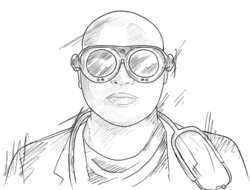
—Dr. D
🧙🏽♂️❤️🧞♂️

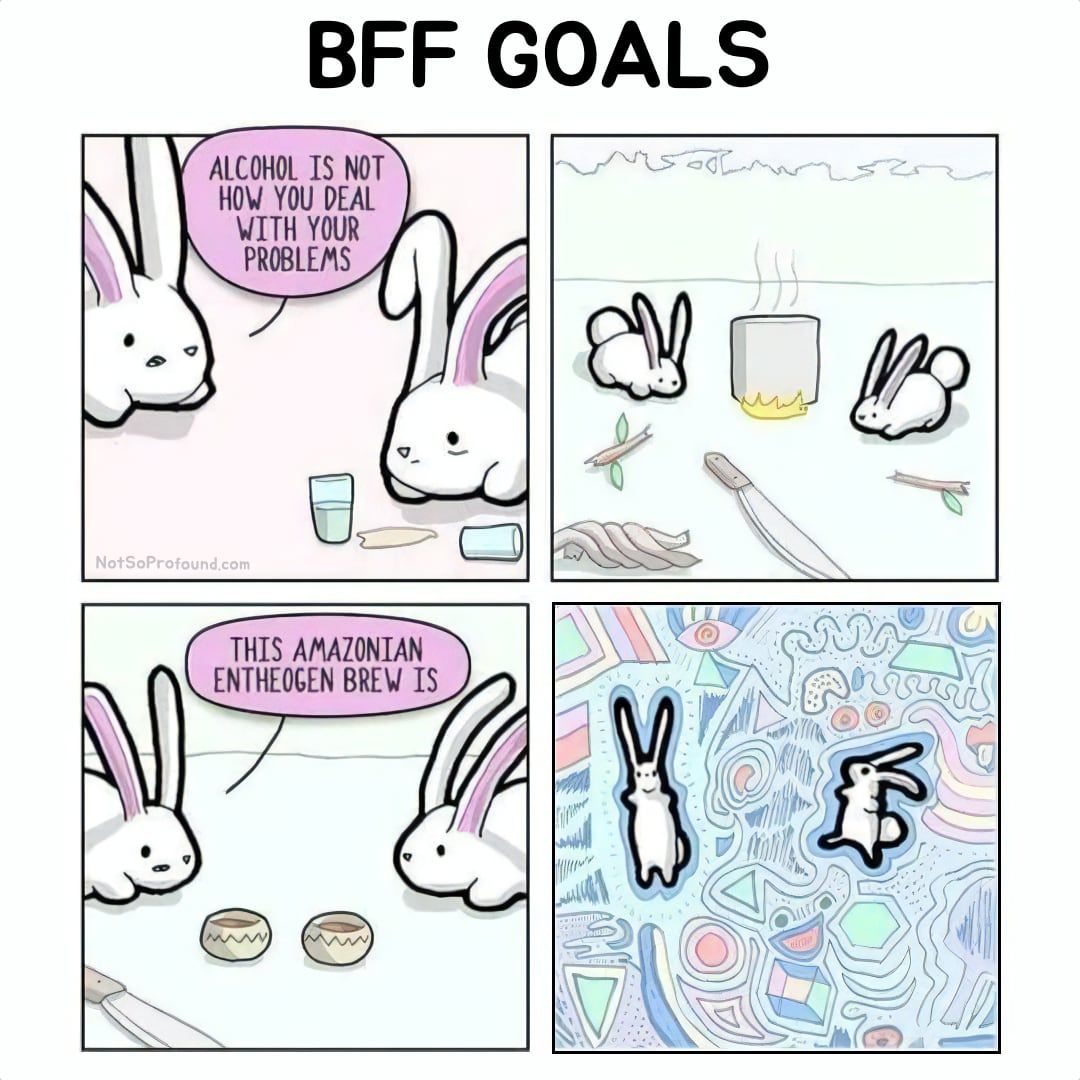

⭐ = Mustafa's favorites
📰 News: Pioneering psychedelics researcher & founding director of Johns Hopkins Center for Psychedelic and Consciousness Research, Roland Griffiths, passed away at age 77 — via John's Hopkins ⭐
📰 News: California Governor Gavin Newsom vetoed a bill to decriminalize ‘magic mushrooms’ and other psychedelics in California. Newsom supports the use of psychedelic medicines but wants regulations in place before legalization. The bill covered personal use of psilocybin, mescaline, and DMT for individuals 21 and older, and doesn't include sales in dispensaries — via Los Angeles Times
🏛️ Policy + 📰 News + 📺 Video: A discussion from a Eureka City Council Meeting where Eureka becomes the 6th City in California to decriminalize Psychedelics. Humboldt County residents also share their opinion(s) on why they support the decriminalization of Entheogens. I like the responses of this woman and this guy — via YouTube
📰 News: UC Davis researchers are reverse engineering psychedelics to create a new type of drug called non-hallucinogenic psychoplastogens aim to promote neuroplasticity without hallucinations — via UC Davis
📰 News: Former Tesla director Antonio Gracias is giving Harvard $16 million to study psychedelics in society and culture — via Harvard
📰 Article: Please don’t self-medicate with psychedelic drugs, an opinion piece that is concerned about the increased public accessibility leading to self-medication, which might endanger the potential of psychedelics — via The Washington Post
📰 Article: One way to heal a brain injury? Let LSD open your mind—literally, an article exploring research about how psychedelic drugs like LSD, DMT, and Ecstasy may have the potential for treating brain injuries and disorders — via National Geographic (non-paywall) ⭐
📰 Article: Chaplains are getting interested in psychedelic-assisted therapy — via NPR
📰 Article: MDMA Therapy inches closer to approval following success in PTSD Trial — via New York Times (non-paywall)
🔬 Study: Case analysis of long-term negative psychological responses to psychedelics, which is a study providing insights into the causes of adverse psychological responses to psychedelics with an emphasis on long-term negative psychological responses — via Nature
🔬 Study: “We don’t want to run before we walk”: the attitudes of Australian stakeholders towards using psychedelics for mental health conditions — A study exploring the attitudes and positions of key leaders and political stakeholders towards using psychedelics to treat mental health conditions in medically supervised contexts in Australia — via PHRP
🔬 Study: Psychedelic drugs, including psilocybin, LSD, and DMT, are being studied for their potential in treating Alzheimer’s Disease and related depression — via MDPI
🔬 Study: Gül Dölen, a neuroscientist, experienced an altered state of consciousness during the 2020 pandemic lockdown, leading her to explore the concept of critical periods in the brain. She investigated whether psychedelic drugs like MDMA and LSD could reopen critical periods and restore social reward learning in mice — via WIRED (non-paywall) ⭐
🗓️ Event: Psychedelic assisted therapy global summit — via Heart Mind Summit
📰 Article: How psychedelics have therapeutic potential and play a crucial role in enhancing subjective experience and promoting play, which is a fundamental aspect of human nature — via TIME
📺 Video: A good (and short) science-based Q&A about psychedelics with Dr. Meghan Hibicke — via American Society for Microbiology [9:32]
📺 Video: 24 huge questions about psychedelics with Johns Hopkins professor Dr. Matthew Johnson — via YouTube [2:09:03]
📺 Podcast: When you feel depressed & lost, listen to this find your purpose video ft. Neale Donald Walsch — via YouTube ⭐
🔊 Podcast: Finding the Humor in Psychedelics, ft. Shane Mauss — via Reason [33:21]
📺 Podcast: The Science of Psychedelics for Mental Health, ft. Dr. Robin Carhart-Harris — via Huberman Lab Podcast [2:37:09]
📘 Book: The forgotten story of women within the history of psychedelics, a great short 10-page book covering an underreported topic — via University of Saskatchewan ⭐


Hardly any other science is as conservative and tradition-bound as medicine.
Whenever a new treatment modality or an extraordinary medicine appears, in addition to interested acceptance in specialist circles, there is also opposition to the novelty, which is emotional and vehement, in proportion as the innovation is significant and pioneering.
Hypnosis may be cited as an example.
It was denounced as dangerous charlatanism, and more than a century had to pass before it gained entry into mainstream medicine.
Today, a novel group of psychoactive substances that have come to be known under various designations hallucinogens, psychotomimetics, psychedelics, and entheogens has evoked violent controversy in professional circles and the media.
These are substances capable of profoundly affecting human consciousness.
This explains the vehemence and the passion that accompany discussions of the 'psychedelics', as these materials are mostly known today, since we are talking about the veritable inner core of our humanity, our consciousness.
On the other hand, one would imagine that psychedelics might have gained especially easy entry into medicinal practice, since we are dealing here with active principles of drugs which for millennia have played a meaningful role in archaic cultures and which even today among primordial peoples find beneficial application in social and medicinal fields.
Had we from the outset harked back to these archaic experiences, we would have been able to avoid the misuse and proper use of these extremely potent psychopharmaceuticals, and they would not now be prohibited but would have become valuable medicines in the contemporary pharmacopeia.
All of these drugs are integrated into tribal cultures and employed as 'magic medicines' in a religious-ceremonial context.
Their use is in the hands of shamans or shamanesses, male or female priest-doctors, where they manifest a beneficent action.
They are esteemed as sacred, and according to Indian beliefs, their misuse or profanation is punished by the gods with insanity or death.
This very promising use of psychedelics in psychiatry and psychology came to an untimely end midway through the sixties, when this new class of pharmaceuticals was outlawed, with the complete prohibition of their manufacture, possession, and use.
Accidents involving psychedelics resulting from frivolous, uncontrolled use in the drug scene were the ostensible reason for the Draconian prohibitive measures, however was the goal of attacking the youth movement, hippies, and the like, who opposed the establishment and the Vietnam War, and whose 'cult-drug' was above all, LSD.
Medicinal use of psychedelics was prevented by the official prohibition, and further research in this field was interrupted while consumption continued in the drug scene.
This irrational situation still largely exists today.
For therapists, the use of psychedelics became a criminal matter, for which they could face punishment.
One of the very few therapists who continued to use psychedelics, accepting the great risk of criminality, was the psychologist here referred to by the alias 'Jacob' and dubbed the 'Secret Chief.'
Jacob had obtained mostly excellent results from his specially developed techniques in the use of psychedelics, and he realized that this therapeutic method should not be withheld from sick people.
His ethical obligation as a therapist, to help people, took priority for him over obedience to a dubious official prohibition.
—Dr. Albert Hofmann, discoverer of LSD
Member discussion